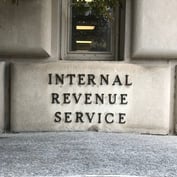A panel of the House Financial Services Committee (FSC) today reported out legislation to the full committee that would significantly restrict the ability of federal regulators to get financial information from insurance companies.
The bill, H.R. 3559, the Insurance Data Protection Act of 2011 was sponsored by Steve Stivers (R-Ohio) and was approved along party lines. The vote was 7-5, with Republicans supporting it and Democrats opposing it.
The bill was taken up by the Subcommittee on Insurance, Housing and Community Development Committee.
It is unclear when it will be reviewed and voted on by the full FSC.
Rep. Luis Guttierrez (D-Ill.), ranking minority member, objected most vociferously to the legislation.
He said it was an industry-written bill, and protested the provisions stripping the Federal Insurance Office (FIO) of its subpoena powers.
Rep. Michael Capuano (D-Mass.) also opposed the legislation “for now.” His concern was with the provision that required federal agencies to comply with the Paperwork Reduction Act in collecting financial information from insurers.
Stivers said he would work with Guttierrez and Capuano “as much as possible” to deal with their concerns before the bill is taken up by the full committee. “We’re not trying to roll anyone over,” Stivers said.
He said the purpose of billis to make sure the FIO is not a regulator, but is merely an information-gathering entity and to make sure it is collected in the most efficient means possible.
The bill would revoke the authority of the FIO and the Office of Financial Research (OFR), two new entities created by the Dodd-Frank Act, to subpoena data from insurance companies.
The bill also would require the FIO, the OFR, the Financial Stability Oversight Council, and any other federal entity that seeks data about insurance companies to obtain that data through the insurance company’s state regulator, another federal agency, or a public source.
As well as requiring federal entities and state regulators to maintain the confidentiality of nonpublic data obtained from or shared with other federal and state regulators.
R.J. Lehmann, deputy director of the Heartland Institute’s Center on Finance, Insurance and Real Estate in Washington, was highly critical of the legislation.
He said it is understandable that insurers would want to avoid costly and duplicative data requests, but said DFA already strictly limits the FIO’s ability to collect data from insurers, and grants it the power to issue subpoenas only when it cannot gather information any other way.
Lehmann interprets the bill as saying the bill “would leave the office completely beholden to the states and the National Association of Insurance Commissioners for any and all information it might need.”
Lehmann said that, “could potentially compromise the office’s charge to make recommendations to Congress on ways to improve and modernize the state-based system of insurance regulation.”








 December 09, 2011 at 05:00 AM
December 09, 2011 at 05:00 AM










